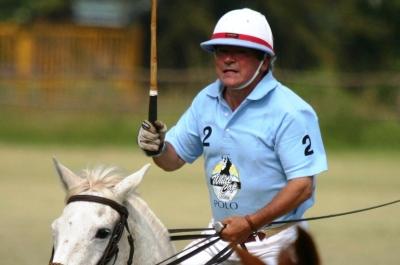Brian Perry
Brian Perry is an international consultant specialising in livestock health and broader agricultural development issues in countries of the developing world.

Brian graduated from Edinburgh in 1969, and after a short spell in mixed veterinary practice in the UK specialised in tropical diseases. Since 1971 he has lived in Ethiopia, Colombia, Zambia, the USA and Kenya, and consulted to countries all over the world. He is an Honorary Professor at the Universities of Edinburgh and Pretoria, and a Visiting Professor at the University of Oxford; he currently lives in Kenya’s Rift Valley.
What made you specialise in developing country issues?
While still an undergraduate I became fascinated by the challenge of controlling tropical diseases, and after studying for a Diploma in Tropical Veterinary Medicine at Edinburgh University went to Ethiopia leading teams engaged in rinderpest control. Seeing first hand the multiple and diverse contributions of livestock to livelihoods and the economy stimulated my appetite for a greater understanding of animal health constraints to international development.
How did you get to where you are today?
Much of it has been lucky breaks, backstopped by some important early training support from the Overseas Development Administration (now the Department for International Development, DFID). After Ethiopia I took an MSc in Tropical Veterinary Science, also at Edinburgh, armed with which I started a sheep disease investigation laboratory with associated field investigations in Bogotá, Colombia. There I was frustrated that a disproportionate amount of investment was being made by some bilateral development agencies in diseases that were not really a priority for many Colombian farmers, and this drew me into the realms of epidemiology and economic impact assessment. I then went to Zambia as the epidemiologist with a FAO (Food and Agriculture Organisation of the United Nations) project, with the task of determining the priority constraints to smallholder farms. From here I was recruited as the epidemiologist at the newly created veterinary school in Virginia, USA, with both teaching and research responsibilities. In 1987 I returned to Africa to establish an epidemiology programme at the International Laboratory for Research on Animal Diseases (ILRAD, now the International Livestock Research Institute, ILRI), having obtained a doctorate (from Edinburgh again!) for my research on a new disease of horses in the US. At last I was able to pull together my combined interest in the dynamics of tropical diseases and the impacts these diseases have, building programmes to determine research and development priorities for different regions and species, with a particular emphasis on contributions to poverty reduction. I left ILRI 3 years ago after 20 years, and am now involved principally in promoting the greater use of evidence-based tools to inform policies on livestock health and development.
How do you spend a typical day?
There is no such thing as a typical day! For example over the last few months I have been leading a team evaluating the FAO’s responses to avian flu around the world; some days have seen me travelling to live bird markets in Nigeria or Cambodia, some meeting government officials and field vets in Indonesia or Egypt, and some sitting at my computer in the Rift Valley writing reports.
What do you like about your job?
I love the intellectual challenge of making what I hope are meaningful contributions to international development processes, and the opportunities for meeting a wide range of interesting people.
What do you not like?
The time lost while travelling, and the hassles associated with air travel these days.
Why is your job important?
In this world of limited resources but with so much to be achieved, there is a huge need for good decision making on disease control strategies and development policies that are supported by strong evidence of their impacts and importance. This is particularly the case in many developing countries where poverty levels are high and livestock play such an important role.
What advice would you give to someone considering a similar career?
They key is building your personal credibility through academic qualifications, first hand experience and good communication skills. I know it takes more time after so many years at vet school, but a PhD (or equivalent) provides the academic springboard. Field experience in developing countries can be gained with organisations such as VSO, followed by post doctoral attachments with universities and international institutions in developing country programmes. And it is well worth investing time in developing those communication skills.
What's the best piece of advice you were ever given?
“All work and no play makes Jack a dull boy” by my father. Hard work and dedication is essential; and so is making time for family and sports.
What have been your proudest career moments?
Receiving the OBE in 2002, and being awarded the International Outstanding Scientist award from the Consultative Group for International Agricultural Research (CGIAR) in 2004.
Like all vet graduates you started out as a clinician; your current job description appears to be a long way away from that. Do you miss your veterinary roots?
The roots are still there, from the great base created by a veterinary degree. I loved the close involvement with farmers, and the highs I got from delivering live healthy calves and lambs; but the routine work, which took up most of my time, did not give me the challenges I thought I should be taking on. Actually, I still do regular emergency clinical work at polo tournaments, and attend to the ailments of my own horses and dogs, which help me to convince myself that I can still call myself a proper vet!


